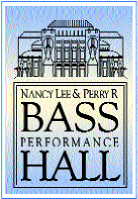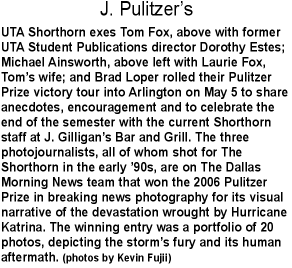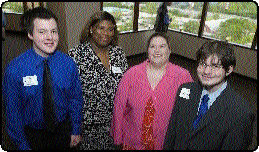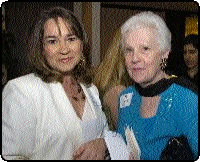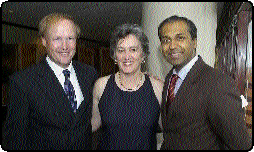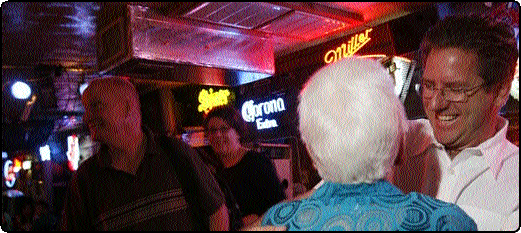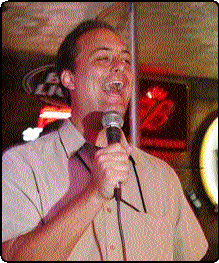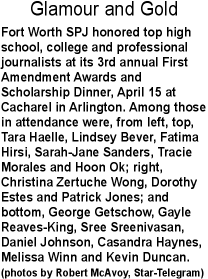

PRSA local update: Members have the opportunity to attend professional development teleseminars this month on communications planning, writing and crisis communication. Attendees will learn how to develop well-rounded and effective communications planning in the first offering, Tuesday, June 13. Those who attend the second teleseminar June 15 will be provided a seven-step system to help make their writing easier to understand. And June 22, crisis communications guru James E. Lukaszewski, ABC, APR, Fellow PRSA, will offer tips on how to handle provocative questions and emotional questioners. More on all three at fortworthprsa.org/events.htm.
PRSA local update II: Anyone thinking of joining PRSA, now's the time. PRSA national will pay the chapter memberships of those who join in June in its annual "Spring Ahead" promotion. Membership applications are at prsa.org.
SPJ national update: Public employees' speech rights restricted; the feds are tapping ABC's phones; and blogger-journalists win one. In a ruling affecting millions of government employees, the Supreme Court declared May 30 that the Constitution does not always protect their free-speech rights for what they say on the job. In a 5-to-4 decision, the court held that public employees' rights are protected when they speak out as citizens, but not when they speak out in the course of their official duties. More here. ... A senior federal law enforcement official told ABC News that the government is tracking the phone numbers it calls in an effort to root out confidential sources, possibly in connection with leaks about a CIA program to detain terrorism suspects at secret locations outside America. "It's time for you to get some new cellphones, quick," the source told reporters Brian Ross and Richard Esposito in an in-person conversation. More here and here. ... A California appeals court on May 26 rejected Apple Computer's bid to identify the sources of leaked product information that appeared on web sites, ruling that online reporters and bloggers are entitled to the same protections as traditional journalists. "In no relevant respect do they appear to differ from a reporter or editor for a traditional business-oriented periodical who ... comes into possession of confidential internal information about a company," Justice Conrad Rushing of the 6th District Court of Appeal wrote in a unanimous 69-page ruling. "The shield law is intended to protect the gathering and dissemination of news, and that is what petitioners did here." More here and here.
SPJ national update II: Reuters is hiring; U.S. urged to stop paying reporters; and journalists can be prosecuted, Gonzales says. Reuters is in the process of hiring 100 journalists after three years of cost cutting and reorganization. This will boost its ranks to 2,400 journalists operating 196 news bureaus in 130 countries, still short of the 2,500 journalists who worked for Reuters in 2000. ... A Defense Department investigation of Pentagon-financed propaganda efforts calls for an end to payments to a group of Iraqi journalists in Baghdad in exchange for positive stories. It was disclosed last November that the military had paid the Lincoln Group, a Washington-based Pentagon contractor, to plant articles written by American soldiers in Iraqi publications, without disclosing the source of the articles. The contractor also paid Iraqi journalists for favorable treatment. More here. ... Attorney General Alberto Gonzales says journalists can be prosecuted for publishing classified information. He also says the government would not hesitate to track reporters' phone calls as part of a leak investigation but that officials would not do so routinely. Lucy Dalglish, executive director of the Reporters Committee for Freedom of the Press, said she presumes that Gonzales is referring to the 1917 Espionage Act, which she said has never been interpreted to prosecute journalists who were providing information to the public.
SPJ national update III: Military admits massacre; and tape shows Louisiana Democrat taking money. Months after the killings were uncovered by the press, the U.S. military admits that a massacre took place in an Iraqi village in November and then was covered up by soldiers or officers. Time magazine brought the murder to light in the U.S. in March, after months of charges in the Arab press. Knight Ridder and the AP followed with stories. The main evidence was a video shot by a local journalism student, plus villagers' testimony to human rights workers. The military first said that the victims died from a homemade bomb and, later, in a crossfire. More here and here and here and here. ... A congressman under investigation for bribery was caught on videotape accepting $100,000 in $100 bills from an FBI informant whose conversations with the lawmaker also were recorded. Agents later found the cash hidden in the lawmaker's freezer. At one audiotaped meeting, Rep. William Jefferson chuckles about writing in code to keep secret what the government contends was his corrupt role in getting his children a cut of a communications company's deal for work in Africa. More here and here.








